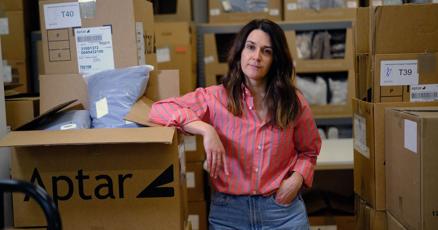Article – The package delays at Canada Post have turned Aimee Sortino’s small business into a daily stress test. “I’m literally checking tracking numbers every hour,” says the founder of Local Love Gift Boxes, a Toronto-based company that ships curated gift boxes featuring products from local artisans.
Sortino represents just one voice in a growing chorus of frustrated Toronto entrepreneurs grappling with the ripple effects of Canada Post’s service disruptions. The crown corporation’s labor disputes have created a perfect storm for small businesses already navigating the competitive holiday retail landscape.
“We’re seeing delays of up to three weeks on packages that should arrive in days,” explains Marcus Chen, who runs Eastside Brewing Supply in Leslieville. “For small businesses like mine, this isn’t just an inconvenience—it’s potentially devastating to our bottom line.”
The timing couldn’t be worse. With the holiday shopping season representing up to 40% of annual revenue for many retail businesses, delivery reliability has become mission-critical. According to the Toronto Region Board of Trade, small businesses contribute approximately $77 billion to the city’s GDP annually, making their collective struggles particularly concerning for the local economy.
Entrepreneurs are scrambling to find alternatives. Natalie Wong, founder of Handcrafted TO, a boutique selling locally made home goods, has temporarily switched to courier services. “The cost is killing us,” Wong admits. “We’re paying three times more for shipping, which either cuts into our already thin margins or gets passed to customers who might shop elsewhere.”
Some businesses are turning these challenges into opportunities for community building. Downtown record shop Vinyl Destination has organized a “Skip-the-Ship” promotion, offering special discounts for in-store pickup. “We’ve seen about a 30% increase in foot traffic,” says owner Jamal Lewis. “It’s not ideal, but we’re making the most of a tough situation.”
For businesses reliant on shipping time-sensitive items, the workarounds require creativity. Bloom Bakery, known for their artisanal birthday cakes, has partnered with local ride-share drivers for same-day delivery within the city. “It costs more, but it’s worth it to maintain our reputation for reliability,” explains owner Sarah Kim.
The disruptions highlight how deeply Canada Post is woven into our business infrastructure. Despite the growth of private shipping alternatives, the national mail service remains the backbone of e-commerce delivery for many small operations, particularly those shipping nationwide.
“There’s an accessibility issue here that’s not getting enough attention,” notes Raul Moreno, policy director at the Toronto Small Business Association. “Many entrepreneurs in marginalized communities rely exclusively on Canada Post because of its affordability and reach. These delays disproportionately impact those businesses.”
City councillor Paula Fletcher, whose ward includes several business improvement areas, has been advocating for emergency support. “We need to recognize that this is essentially a natural disaster for small businesses,” Fletcher says. “They need immediate help with shipping subsidies or tax relief.”
Some tech-savvy entrepreneurs have found workarounds through local delivery apps. “We’ve integrated with three different delivery platforms,” explains Mina Park, who runs an online Korean skincare shop. “Our local orders are actually arriving faster now, though at significantly higher cost.”
The postal disruptions have also highlighted a concerning trend: the growing leverage of large e-commerce players. “Amazon can absorb these shipping challenges because of their scale,” explains Dr. Rajiv Krishnan, retail economist at York University. “Small businesses simply don’t have that flexibility, which further tilts the playing field toward the giants.”
Looking ahead, business owners worry about lasting damage to customer relationships. “People don’t blame Canada Post when their package is late—they blame us,” sighs Chen. “We’re the ones who get the angry emails and bad reviews.”
As I walked through the Distillery District yesterday, I noticed how many shop owners had handwritten signs explaining shipping delays. These aren’t faceless corporations but our neighbors—the entrepreneurs who make Toronto’s retail landscape unique and vibrant.
For consumers wanting to support local businesses through this challenging time, the solution may be old-fashioned: shop in person when possible, choose local pickup options, and extend patience when delays occur. After all, the small businesses that make our neighborhoods special are counting on that understanding to weather this postal storm.
In the meantime, Sortino continues refreshing those tracking numbers, hoping her carefully curated gift boxes will reach their destinations before the holidays. “What makes this so frustrating is the uncertainty,” she says. “We just want to deliver on our promises to customers.”
For Toronto’s small business community, that’s becoming increasingly difficult—one delayed package at a time.







